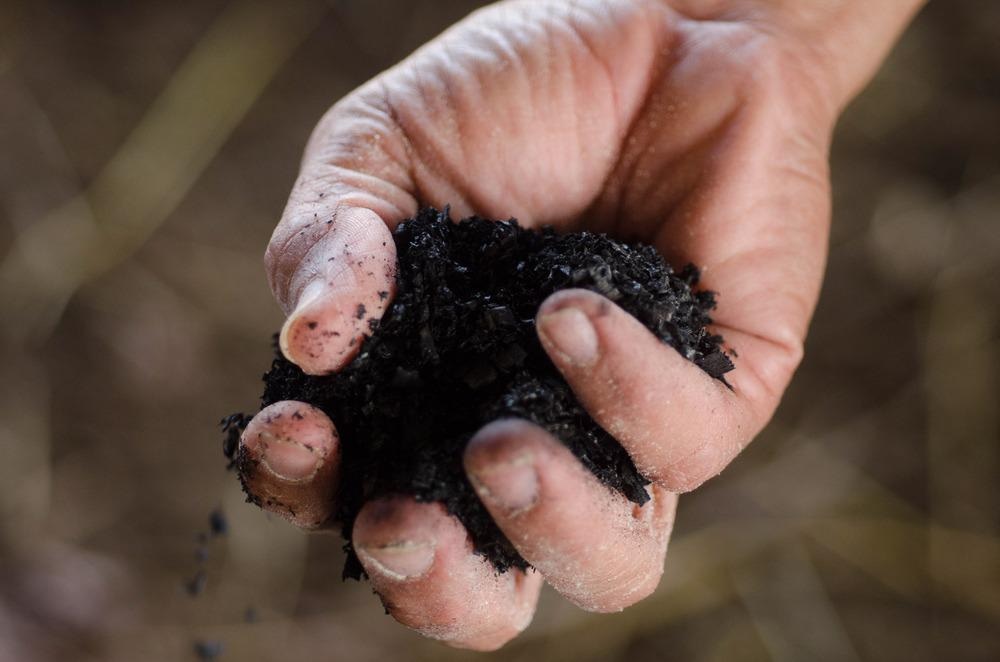The wide applications of nano-biochar biorefineries have been reviewed in the journal Renewable and Sustainable Energy Reviews.

Study: Preparation of nano-biochar from conventional biorefineries for high-value applications. Image Credit: paroonkorn srichan/Shutterstock.com
Nano-biochar outperforms conventional biochar in common applications like sewage treatment and soil improvement, representing an opportunity for high-value applications in developing fields like electrochemistry and biocatalysis.
Ecological Condition Nowadays
To relieve the ecological footprint resulting from human activities, the Earth's climate urgently needs rapid progress toward carbon-neutral technologies.
Carbon neutrality refers to a condition in which carbon dioxide emissions are zero. This may be accomplished by balancing carbon dioxide outputs and removal.
One common option for reducing negative environmental effects is to apply a structured method to circular economic growth, which helps the economy while maintaining high environmental standards. As a result, the circular economy concept is gaining traction as a way to increase energy and environmental sustainability.
Biochar for Capturing Bioenergy
Biofuels and biochemicals are produced sustainably to substitute fossil fuels and lower pollution caused by improper organic disposal sites. Economic competitiveness is a major barrier to the successful adoption of biofuel and bioenergy generation.
Complete regenerated valorisation of biomasses and biorefining products would improve the economic viability of biofuels and biomass production while reducing pollutant emissions.
Biochar has demonstrated the ability to augment solid fuel for capturing bioenergy while addressing numerous procedures such as pyrolysis, torrefaction, and gasification at a range of climates and periods, among the state-of-the-art biofuels.
Based on the process parameters, biochar can be created as a main or secondary product.
Nano-Biochar for Agriculture
The advancement of nano-biochar would favorably boost "the biochar impact" in agricultural systems, according to the use of nano-biochar in agriculture. Compared to other nanomaterials, including commercialized metallic nanoparticles and bentonite, nano-biochar has a wide range of applications.
Nano-biochar is a promising and adaptable high-value material, but its research and development is still in its early stages, necessitating significant advancements in processing, modifications, and applications.
Nano-biochar is a portion of bulk biochar that can be produced during bulk biochar production, distribution, and application. The particles first spread via the soil and air into water bodies, eventually affecting the entire ecosystem.
Nano-Biochar Preparation
The bulk biochar must first be manufactured by thermochemical carbonization at various temperatures.
To expedite the whole method for nano-biochar production, biochar obtained from traditional thermochemical biorefinery is advised, as it maximizes the value of biomasses by transforming them to nanomaterials.
Whereas the yield of nano-biochar is modest, it occurs spontaneously during the treatment of bulk biochar.
A size reduction technique is necessary to enhance the amount of nanoparticles in biochar. Milling or grinding can be used to easily carry out this operation.
Application of Nano-Biochar in Various Fields
One of the primary research objectives in the use of nano-biochar has been the extraction of heavy metals, inorganic contaminants from sewage or natural water systems.
Contaminants were removed at a substantially greater rate than with bulk biochar. Nano-biochar was also shown to have a strong affinity for organic contaminants.
Nano-biochar can be utilized as a carrier of enzymes and biocatalysts to enable the continuous breakdown of biodegradable compounds.
Using nano-biochar's high absorbability, use within electrodes may capture molecules specifically and increase the concentration of chemicals mostly on electrodes' surface, improving the sensitivity of electrochemical devices for chemical detection.
Future Research
The variation in particle size has made it impossible to evaluate the performance of different nano-biochars, since the SSA of particles is heavily impacted by their sizes, which must be taken into account in future research.
Nano-biochar, when modified properly, may be utilized as catalysts to increase biofuel production while lowering pollutant emissions during rapid pyrolysis of biomass. However, future research based on easily accessible technology will need to determine the true profitability.
There is the possibility of combining nano-biochar synthesis with other thermochemical biorefineries that create biochar as a by-product. Because of its low surface area and limited porosity, hydrothermal liquefaction is commonly used to convert biomass to bio-crude, and the by-product hydrochar is more commonly thought of as a solid biofuel than a high-value commodity.
The team's hypothesized method using ball milling in nano-biochar manufacture can enhance the internal surface area by generating internal pore connections, based on a comparison of theoretical and experimental estimates of exterior surface increments.
Bulk biochar's weaker physical qualities and bigger particle sizes also limited its use in several high-value applications, such as electrochemical processes and as engine additives.
Continue reading: Could the Focus on Sustainability Help Drive the Graphene Market?
Reference
Song, B., et al. (2022). Preparation of nano-biochar from conventional biorefineries for high-value applications. Renewable and Sustainable Energy Reviews Volume 157, Available at: https://www.sciencedirect.com/science/article/pii/S1364032121013198
Disclaimer: The views expressed here are those of the author expressed in their private capacity and do not necessarily represent the views of AZoM.com Limited T/A AZoNetwork the owner and operator of this website. This disclaimer forms part of the Terms and conditions of use of this website.